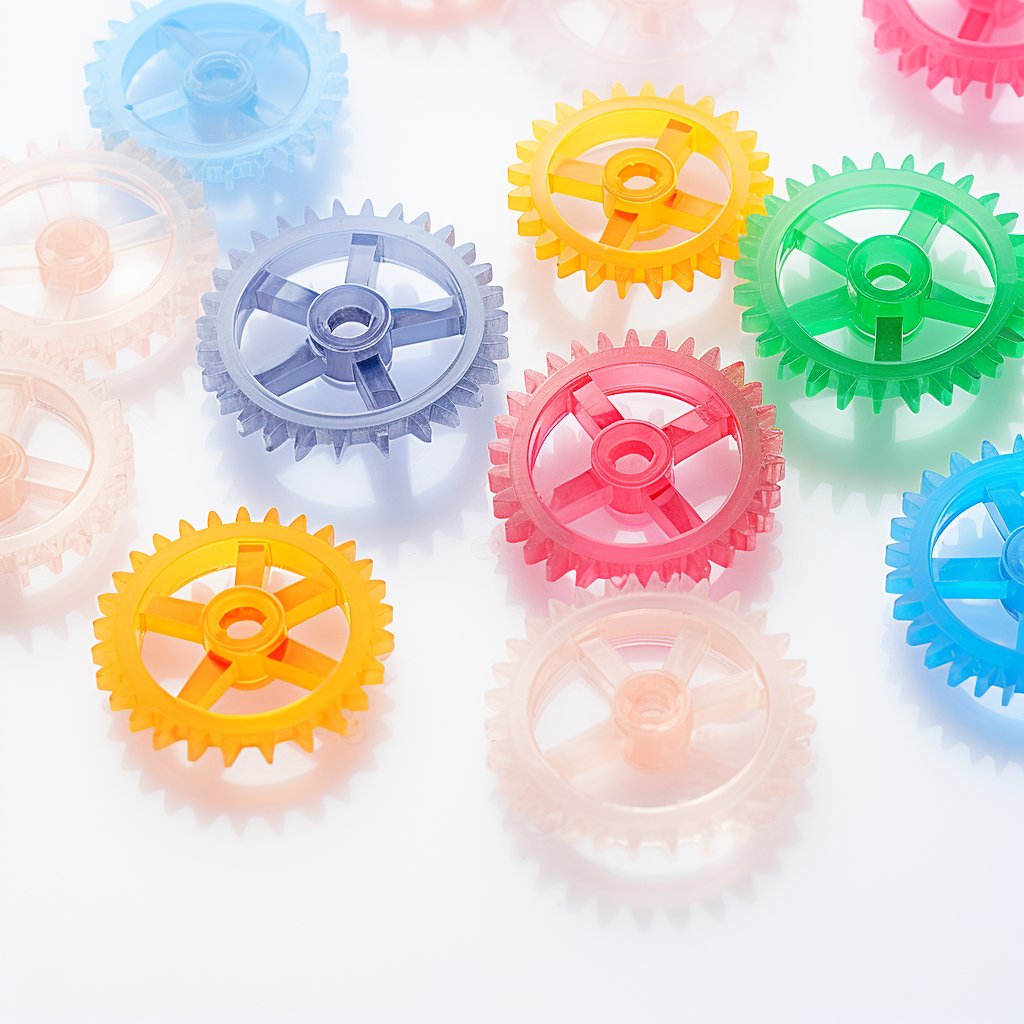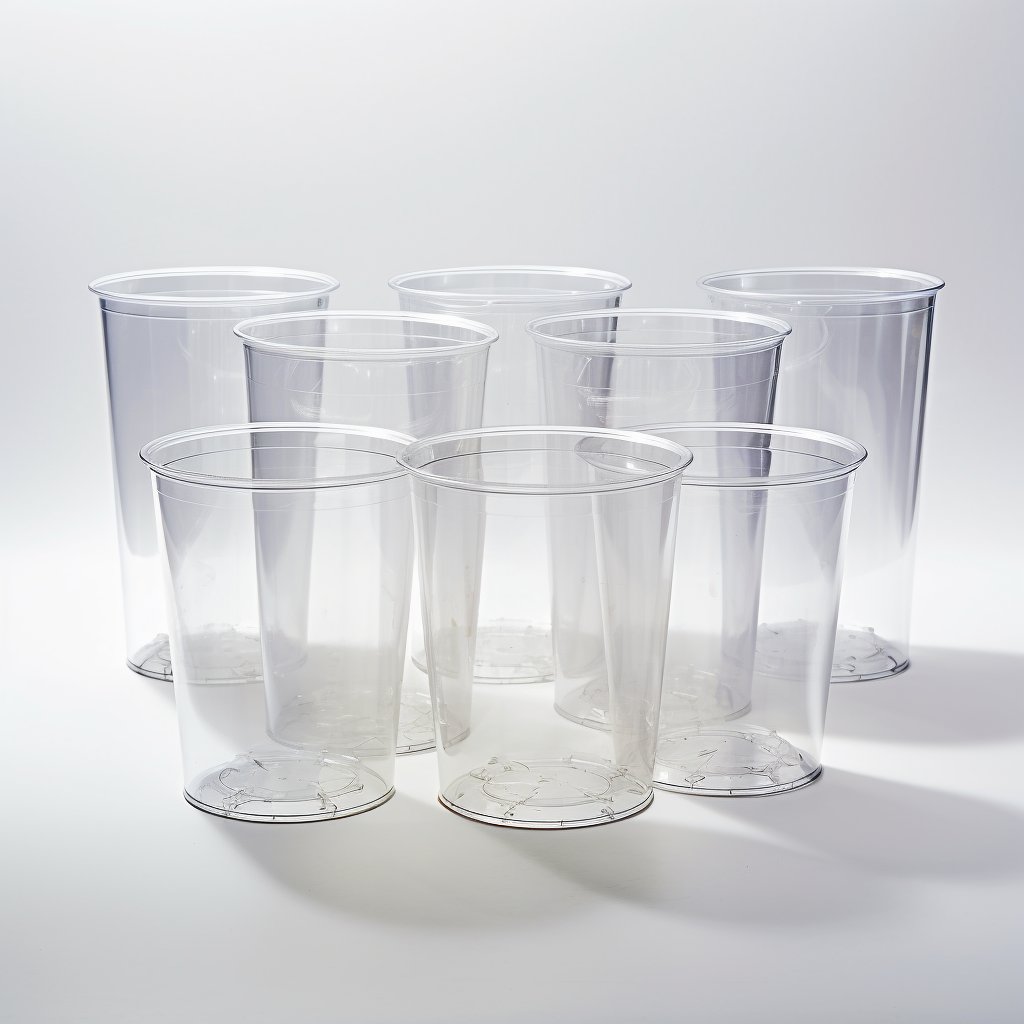Polycarbonate (PC) is a thermoplastic polymer that is known for its high strength, durability, and transparency. Widely used in various industries, including the plastics and recycling industries, as well as in the manufacturing of consumer products PC is a well used plastic.
Polycarbonate was first discovered in 1898 by a German chemist named Alfred Einhorn. However, it was in the 1950s that polycarbonate was developed into a commercial product by General Electric. Since then, polycarbonate has become a widely used material in various industries.
Polycarbonate (PC) is a thermoplastic polymer that has become increasingly popular in the plastics industry due to its unique properties, including high impact resistance, transparency, and flame retardancy. PC is used in a wide range of industrial applications, such as automotive parts, electrical components, and medical equipment, as well as in consumer products like eyeglasses, water bottles, and smartphone cases.

Polycarbonate material properties
Polycarbonate is a strong and lightweight material resistant to impact, heat, and UV radiation. Its excellent optical clarity makes it an ideal material for applications where transparency is essential. PC also has good electrical properties, high dimensional stability, and is resistant to chemicals and weathering.
Industrial usage
Polycarbonate is used in a wide range of industrial applications, including automotive parts, electronics, medical devices, construction materials, and more. It is also used to manufacture CDs, DVDs, and Blu-ray discs.
Application areas
Polycarbonate is used in a variety of application areas, including:
- Automotive industry: Polycarbonate is used to manufacture automotive parts, such as headlight lenses, instrument panels, and exterior trims.
- Electronics industry: Polycarbonate is used to manufacture electronic components, such as computer and phone cases, LCD screens, and printer components.
- Medical industry: Polycarbonate is used to manufacture medical devices, such as IV components, syringes, and surgical instruments.
- Construction industry: Polycarbonate is used to manufacture roofing sheets, window panes, and skylights.
Consumer product examples
Polycarbonate is also commonly used in the manufacturing of consumer products, including:
- Eyewear: Polycarbonate is used to manufacture eyeglasses and sunglasses due to its high impact resistance and clarity.
- Water bottles: Polycarbonate is used to manufacture reusable water bottles due to its durability and resistance to shattering.
- Toys: Polycarbonate is used in the manufacturing of toys and children’s products due to its safety and strength.
In conclusion, polycarbonate is a versatile material with a wide range of applications in various industries. Its high strength, durability, and transparency make it an ideal choice for many manufacturing applications. Whether in the automotive industry, the electronics industry, or the consumer product industry, polycarbonate continues to be a popular and reliable material choice.

Recycling of Polycarbonate
Polycarbonate is recyclable plastic but is not as widely recycled as other plastics due to its relatively low demand in the recycling market. Polycarbonate products can be recycled into various products, including automotive parts, construction materials, and electronic components.
Polycarbonate is a recyclable plastic that can be reused to produce new products. Recycling involves collecting used polycarbonate products, cleaning and sorting them, and then melting them to create new polycarbonate material.
Advantages of PC Recycling
- Reduced Waste: Recycling polycarbonate products reduces the amount of waste that goes into landfills, helping to reduce the environmental impact of plastic waste.
- Energy Efficiency: Recycling polycarbonate products requires less energy than producing new polycarbonate from raw materials, reducing the material’s carbon footprint.
- Cost Savings: Recycling polycarbonate products can be cheaper than producing new polycarbonate from raw materials, which can lead to cost savings for manufacturers.
Disadvantages of PC Recycling
- Contamination: Polycarbonate products can be contaminated with other materials, such as other plastics or dirt, making the recycling process more difficult.
- Quality: The quality of recycled polycarbonate material may be lower than that of virgin material, affecting its properties and performance in some applications.
Environmental and Global Impact of PC Recycling
Recycling polycarbonate products has a positive environmental impact by reducing the amount of plastic waste that ends up in landfills or oceans. Additionally, the energy savings associated with recycling reduce the material’s carbon footprint.
On a global level, the recycling of polycarbonate products can also positively impact the economy by creating jobs in the recycling and manufacturing industries. However, the demand for recycled polycarbonate is still relatively low, which means that the impact of recycling on the global economy is limited.
In conclusion, recycling polycarbonate products has several advantages, including reduced waste, energy efficiency, and cost savings. However, there are also some disadvantages, including contamination and lower quality of recycled material. Overall, recycling polycarbonate products has a positive environmental impact. It can contribute to the global economy, but there is still room for improvement in increasing the demand for recycled polycarbonate material.

Advantages and Disadvantages:
Polycarbonate (PC) is a versatile thermoplastic polymer known for its high strength, durability, and transparency. It is widely used in various industries, including the plastics and recycling industries, as well as in manufacturing consumer products. However, like any other material, PC has its advantages and disadvantages.
Advantages of Polycarbonate
- High Impact Resistance: Polycarbonate has a high impact resistance compared to other plastics, making it ideal for use in applications that require impact resistance, such as automotive parts, helmets, and protective gear.
- Transparency: Polycarbonate has excellent optical clarity, making it ideal for applications where transparency is essential, such as eyewear, windows, and skylights.
- High-Temperature Resistance: Polycarbonate can withstand high temperatures, making it ideal for use in applications that require heat resistance, such as electronic components, medical devices, and automotive parts.
- Good Chemical Resistance: Polycarbonate is resistant to chemicals, including acids and bases, making it ideal for applications requiring chemical resistance.
Disadvantages of Polycarbonate
- High Cost: Polycarbonate is more expensive than other plastics, making it less commonly used in some applications.
- Scratch Resistance: Polycarbonate can be scratched easily compared to other plastics, which can affect its optical properties and appearance.
- Environmental Concerns: The production of polycarbonate requires the use of bisphenol-A (BPA), which is a controversial chemical due to its potential health effects. However, most polycarbonate products are now produced without BPA.
Market Price Developments
The price of polycarbonate is affected by various factors, including the cost of raw materials, production costs, and demand. The price of polycarbonate has been relatively stable in recent years, but it can be affected by fluctuations in the supply and demand of the market.
Future Market Prognosis
The demand for polycarbonate is expected to continue to grow in the coming years, driven by its increasing use in various industries, including automotive, electronics, and construction. The demand for transparent plastics is also expected to increase, which is expected to benefit polycarbonate due to its excellent optical clarity. However, environmental concerns and the increasing popularity of alternative materials, such as bioplastics, could affect the growth of the polycarbonate market in the long run.
In conclusion, polycarbonate is a versatile material with many advantages and disadvantages compared to other plastics. It is a recyclable material with a stable price, and its demand is expected to grow in the coming years. However, environmental concerns and the popularity of alternative materials could affect the growth of the polycarbonate market in the long run.
Polycarbonate: An indispensable material?:
Polycarbonate (PC) is a versatile thermoplastic polymer that has revolutionised many industries with its unique properties. PC has become indispensable in our daily lives, from automotive parts and medical equipment to consumer products like water bottles and smartphone cases. However, as with all plastics, PC has significant environmental impacts and challenges related to disposal and recycling. Despite these challenges, developing new recycling technologies and initiatives by governments and industries are paving the way for a more sustainable future.








